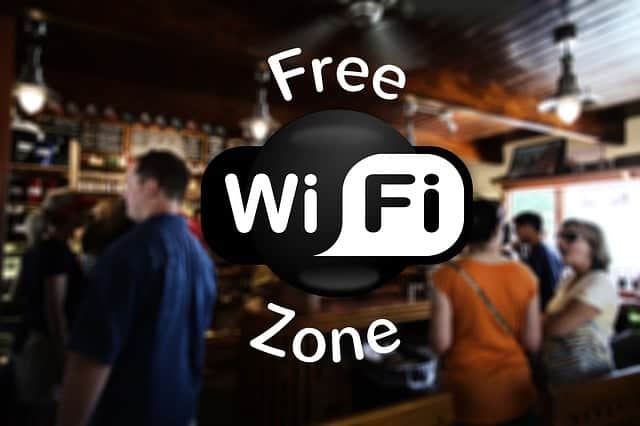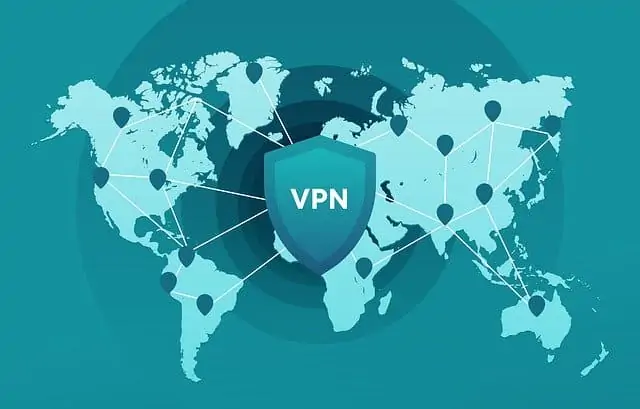Virtual Private Network or VPN services are becoming increasingly popular nowadays, but for total newcomers to the topic, there can be some confusion as to how they work, and where they can be used. Can you use a VPN anywhere, in any location, any network, any country? Is there anywhere you can’t access or use a VPN service?
You can access and use a VPN application on any network and in any country where their use is not prohibited, and as long as you have an acceptable internet connection. It is illegal to use VPNs in a small number of countries.
In other words, barring a few exceptions, you should be able to access and use your VPN in most places around the world. Let’s dive into this issue in more detail.
You Can Use a VPN Anywhere With A Reliable Internet Connection
One aspect of this query could be asking whether you can just use your VPN outside the home, in any public place. The answer is yes, as long as you’ve got some kind of solid internet connection and obviously have the password to connect the the network if required.

Therefore you can use a VPN on public Wi-Fi (and are in fact encouraged to do so), as long as the connection is at least halfway decent and reliable. If the connection keeps dropping out, then so will the VPN service.
But VPNs can generally be used on public Wi-Fi networks, with some occasional problems we’ll cover further below.
You Can Use A VPN In Most Countries
As long as you’ve also got a usable internet connection, you can also freely use a VPN in most countries.
A Virtual Private Network or VPN can allow you to:
- Mask and replace your actual IP address and location and replace it with a new one, so you appear to websites to be in a different location.
- Add an extra layer of very strong encryption around your connection, anonymizing and protecting your traffic from hackers and snoopers.
- Access sites that would normally be blocked or restricted in that country.
- Access sites that would normally not be able to access because you are outside the country.
- Access content from geo-restricted streaming services that might normally be blocked.
- Log in to your emails, online banking and other accounts securely.
- Make online transactions safely to prevent fraud, identity theft and other issues, especially when abroad.
And in most cases (with a few exceptions we’ll cover below), it doesn’t matter where you are using the VPN – it works the same. You open up the app/interface, select the server location you want, and then connect. You then appear to all websites to be in that location, not your actual location.
Countries Where Using A VPN Is Illegal or Heavily Restricted
However, all of this said, there are a small number of countries globally where using a VPN is illegal, restricted or otherwise unclearly defined. Here’s an up to date list of these countries at the time of writing:
- Belarus – heavily restricted
- China – heavily restricted
- India – not illegal but providers are now required to collect user data.
- Iran – heavily restricted
- Iraq – VPNs fully illegal
- Myanmar – VPNs full illegal
- North Korea – Heavily restricted or illegal
- Oman – Heavily restricted
- Pakistan – Heavily restricted
- Russia – VPNs illegal since 2017
- Sri Lanka – Heavily restricted or blocked
- Turkey – Sometimes blocked
- Turkmenistan – Banned
- Uganda – Heavily restricted and blocked.
- United Arab Emirates – Illegal if used to commit a crime
- Uzbekistan – Heavily restricted and blocked
- Venezuela – Heavily restricted and blocked
Source – here
There are some shades of grey to some of the countries listed. For example, in some of the listed countries, using a VPN is not exactly illegal, or a little unclear, but use is heavily discouraged and sometimes fined.
In other countries like Iran/China, you can only sign up to Government approved VPN providers, meaning your use of the service will likely be logged and tracked. These countries also tend to have technology in place to block non-approved VPN services.
But bottom line – it is not advised to try using a VPN in any of these listed countries. You can face a heavy fine or jail time if caught.
If you’re using a VPN in any other country not listed, you’re more likely to be fine accessing and using it, although you may still encounter some problems in some nations (see below).
Some Common Problems Accessing & Using VPNs
There are sometimes problems you can encounter when trying to use a VPN either outside your home network, or in a different country. Here are the most common ones:
VPN Blocking at Governmental level – There are some countries where although VPN use is not technically illegal (or the regulations are murky and unclear), Governments still sometimes try to block VPN usage. This can be either be by blocking access to the provider’s websites (so you can’t sign up for subscriptions and download the product), or blocking the VPN app from accessing the internet when you try to use it (China often does this, using Deep Packet Inspection to analyze all internet traffic in granular detail). As long as VPN use isn’t outright illegal in that country, the only way around this is to pick a more expensive VPN that specializes in allowing access in countries like China (VyprVPN is especially good for this, using a special “Chameleon” protocol to circumvent blocking).
VPN Blocking at ISP Level – Sometimes, even if VPN usage is not illegal in a country, some internet providers unilaterally decide to block VPN websites anyway, perhaps because they mis-categorise them as “adult” or “illegal” or some other label. There are sometimes ways around ISP blocking; see our guide which covers how to get around problems when you cannot access VPN sites even when they are not illegal in that country.
Problems on Public Wi-Fi Networks – Some public Wi-Fi networks are also configured in a way that either makes VPN use difficult, or blocks them altogether. Public libraries and university networks are especially bad for this; see our guide on fixing these issues. But some public Wi-Fi networks do make it awkward to connect a VPN on. In my experience though, most are fine though as long as your connection is acceptable; you just load up and start the VPN as you would at home. See here for any problems you do encounter using a VPN on public networks.
Can You Access Streaming Anywhere With A VPN?
Another reason users might want to use a VPN in different places is to access streaming services from abroad, or a different network. Again, this is usually possible if you’re using a suitable VPN for streaming.
You need to tick a few more boxes though to successfully access a streaming service with a VPN from any location. Here’s what you need to make sure of:
- You’re in a country that doesn’t ban or block VPN usage.
- Your base internet connection is adequate (3-5 Mbps minimum generally recommended for SD streaming; higher for HD streaming).
- You select the correct server location
- The VPN you are using isn’t blocked by the streaming service and still allows access.
Ticking all 4 of these boxes at once can be more tricky, and streaming access with a VPN can never be 100% guaranteed nowadays. There’s a constant cat and mouse battle between streaming services and VPN providers to block VPN IP addresses, and the VPN companies have to issue more, and so on.
However, for best results accessing streaming services from any location, it’s advised to pick a strong, reputable VPN with a good reputation for providing widespread streaming access. ExpressVPN and ProtonVPN are two recommendations here, though cheaper VPNs can sometimes surprise you with their coverage.

